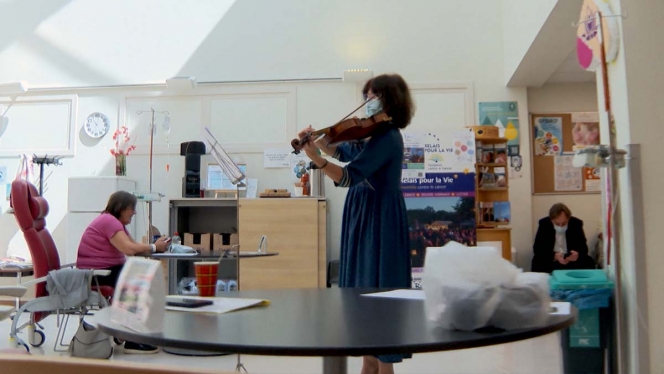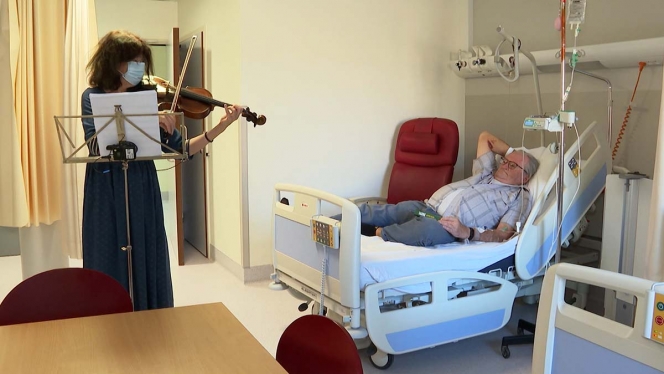Music, although Immal and Invisible, occupies a place of choice in the daily lives of many people. “Morning, noon, evening, I fall asleep even with my headphones”, “I listen every day when I move”, “I don’t like silence”, “it’s fully part of my life. These testimonies reflect what a vast majority feel: music accompanies us, enjoin our daily journeys, soothes us and absorbs us.
It must be said that music is everywhere. Whether in transport, in the sports halls or even in restaurants, we are all exposed there, sometimes even without realizing it. According to a survey by the Federation of the Phonographic Industry carried out in 2023, we listen to an average of 20.7 hours of music per week. 71 % of those questioned say that music is important for mental health.
The hormone of happiness
However, music does not represent a physiological need, which means that technically we could live without it. Besides, there is a minority for whom music seems to have no importance. “It is estimated that it is only about 5 % of people who are indifferent to music,” explains Alain Collinet, music therapist at the CHU de Liège. For him, the explanation is due to our reward system: “We think that in these people, music is not linked to the reward system, and therefore pleasure”. And since the person does not enjoy any pleasure, he does not seek to listen to music.
For the majority, however, music plays a much more significant role. When listening to music, our brain is taking action. The sound waves captured by our ears are transformed into electrical signals, activating areas like the hearing cortex, responsible for emotions and memory. Result: the brain releases dopamine, the pleasure hormone.
Music is an art difficult to measure, and therefore its difficult effects to prove.
It is for this reason that music can influence our mood, even relieve certain depressive states. “Among depressive people, we have seen that there was in any case a decrease in taking antidepressants,” confirms Alain CoLLINE, while nuancing: “Music is an art difficult to measure, and therefore its difficult effects to prove”.
From the concert hall to the hospital
Although difficult to quantify scientifically, the benefits of music are increasingly explored. At the Epicura hospital in Hornu, for example, an innovative project has been testing the impact of music on cancer patients for over a year. Thanks to the Interlude association and the musicians of the Wallonia Royal Chamber Orchestra, patients benefit from private and personalized concerts in full chemotherapy treatment.
It’s a suspended time, a moment of escape.
“It’s soothing,” says a patient. His partner adds: “At least he sees something else, it allows him to get out of his thoughts.” This initiative aims to offer a “parenthesis”, faced with emotional and physical exhaustion that often accompanies the disease. “It’s a suspended time, a moment of escape, which allows patients to think of something else for moments that are not very pleasant,” said François Hocepied, psycho-oncologist in this hospital.




But this experience would not be possible without musicians like Anne Alto. This alto musician, retired from the Wallonia Royal Chamber Orchestra, says her experience in the hospital: “When you play for patients, there is something about the order of the carelessness that happens, and as a musician you feel it, even if the person does not express it verbally. An attitude, a look, a posture is enough. »»

